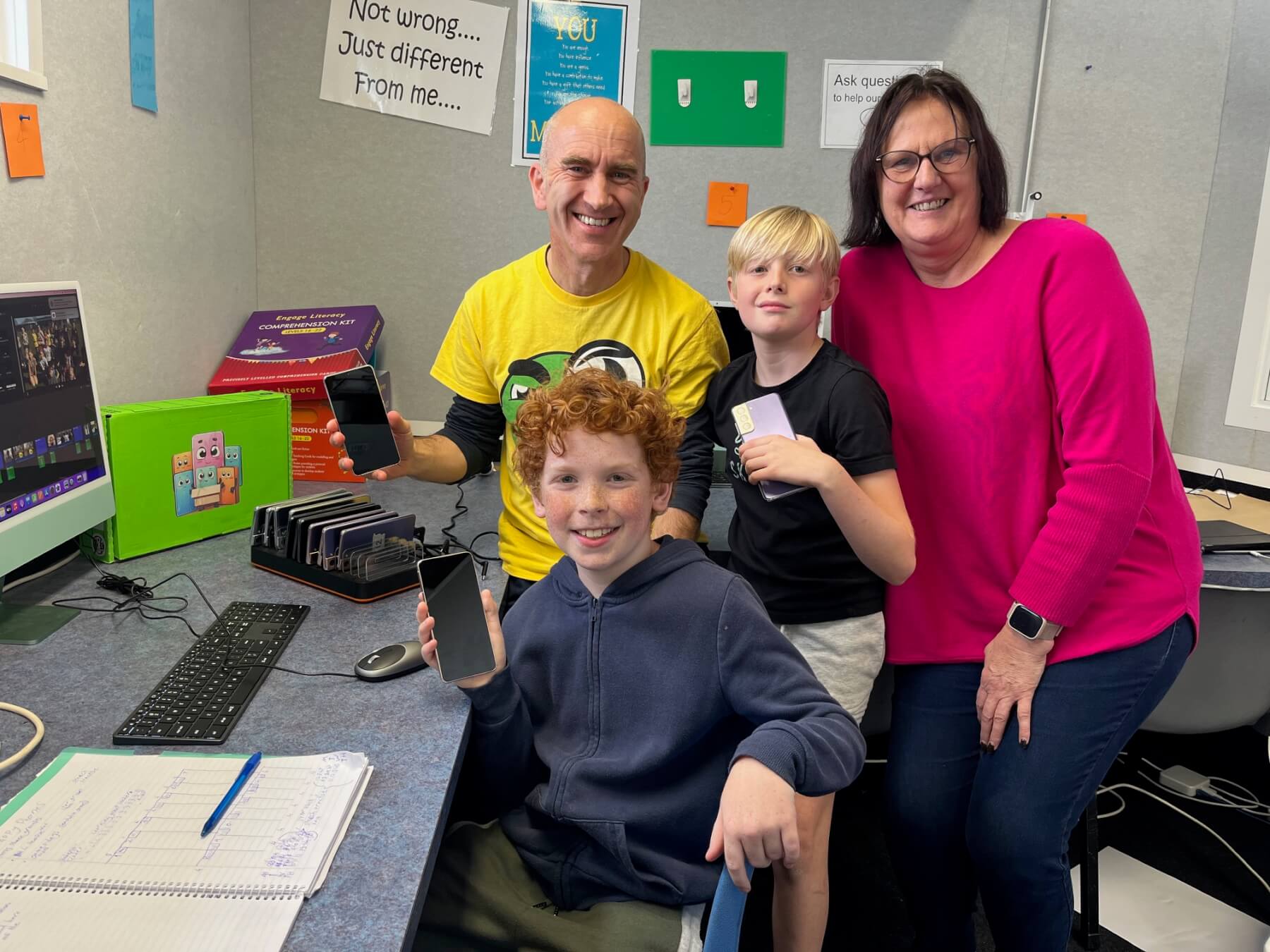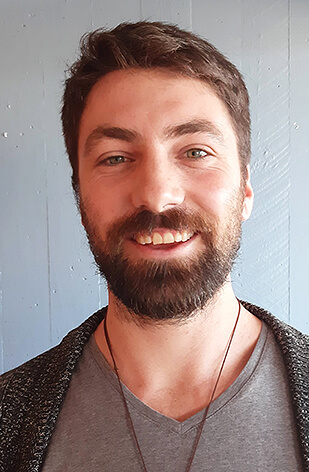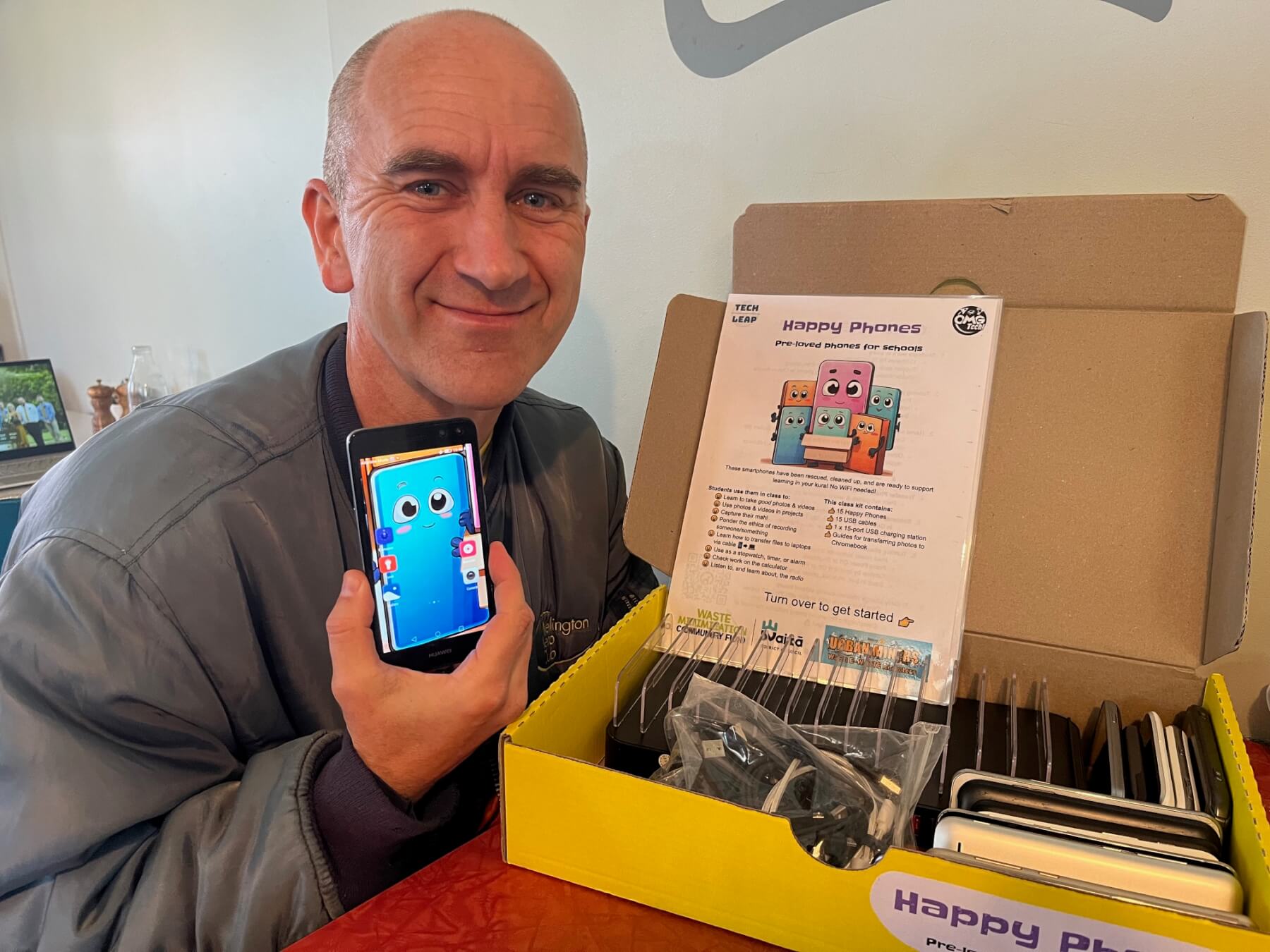I don’t think we have to look too far to recognise that the focus our world has on new and better products has a damaging effect not just on the environment, but on our mental, physical, and spiritual lives as well.

Geoff Bentley and Cambridge East Primary’s assistant principal and Year 5/6 teacher, Kathy McIsaac, with two of the youngsters helping with phone use in the classroom – Connor Button and Paxton Schoppe. Photo: Viv Posselt
Last week’s paper featured an article on the way that Cambridge East Primary School students are using pre-loved cell phones for school projects.
These projects range from learning how to take videos and how to transfer information from phone to PC, all the way to creating their own podcasts and video editing.

Samuel Pullenger
This initiative is an incredible way to reduce the waste created by our consumerist culture while also preparing the next generation for the future.
It can also be a way to teach our tamariki about the flaws of consumerism and the ways that life can be improved through being content.
In the Anglican church calendar, we are in the season of creation. This year the tagline for this season is “To hope and act with creation”.
This challenges us to think about the ways in which our actions can affect creation, while also encouraging us that there is hope for all creation. In our context it is very easy to see ourselves as separate from the rest of creation.
We can shut ourselves off from creation, enjoying the warmth of a heat pump or fireplace.
We drive to work and back, find nightly entertainment in the form of Netflix or YouTube and then spend the remainder of our lives on social media. However, this is not the way Christians believe we were created to live. One way that people have read the Bible is as a story from one garden to another.
The Bible begins with a garden that God creates for all creation to flourish in. When we get to the end of the Bible, we find that God has not only restored the garden but come to live among God’s creation – with humanity.
The picture this gives us is one of hope and fulfilment with all of creation, in the person of Jesus.
Not that we would somehow all be lifted up out of this beautiful physical world, but that in participation with God and others, we would learn to live well with the rest of creation.
Learning to live well with creation can mean anything from recycling and composting to finding ways to enjoy the world we inhabit.
However, especially now, in a time when budgets are tight and advertising continually pesters us with the newest and greatest, finding contentment in what we have could be a really positive way to care for our creation. Being content with what we already have allows us to focus on the here and now, without worrying or stressing about what we want in the future. I encourage us all, just like the pre-loved phones project, to think about how we can take what we already have and find creative ways to repurpose them, not just for our benefit, but for generations to come.

Geoff Bentley with one of the ‘Happy Phones’ classroom kits gaining popularity in local schools. Photo: Viv Posselt








